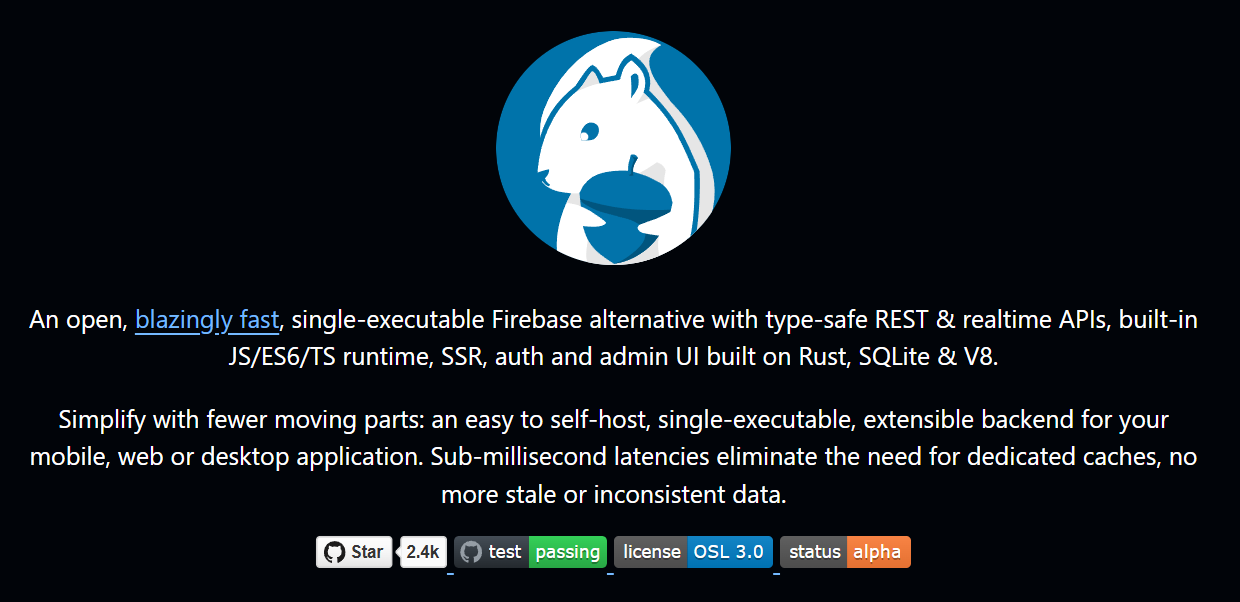[Dev Catch Up #66]- Google Jules, Must-know Database types, ReactJust, how API Gateway works, TrailBase, TypeScript Native Previews, cap, GitHub MCP exploit, Repomix and much more!
Bringing devs up to speed on the latest dev news from the trends including, a bunch of exciting developments and articles
Welcome to the 66th edition of DevShorts, Dev Catch Up!
For those who joined recently or are reading Dev Catch Up for the first time, I write about developer stories and open source, partly based on my work and experience interacting with people all over the globe.
Thanks for reading Dev Shorts! Subscribe for free to receive new posts and support my work.
Some recent issues from Dev Catch up:
Join 7800+ developers to hear stories from Open source and technology.
Dev Shorts is a reader-supported publication. To receive new posts and support my work, consider becoming a free or paid subscriber.
Must Read
Google has launched Jules, an asynchronous coding agent that integrates and understands your repo and performs tasks like writing tests, bug fixes, and building features. Explore more about Jules in Google's blog post.
Privacy in AI systems is still under active scrutiny, especially as real-world exploits continue to emerge. The recent GitHub MCP exploit shows how GitHub MCP Server leaked private repo data. The blog from Invariant Labs breaks the issue clearly, including what went wrong and how to mitigate it.
If you're working with microservices, this post offers a clear walkthrough of how API Gateways handle SSL, routing, rate limits, and circuit breakers. A helpful read for backend and DevOps engineers.
I've seen many projects struggle in the middle because of poor database choices made early on. This post explains ten important databases, when to use them, and what trade-offs to expect. A solid guide to must-know database types for real-world systems and interviews.
OSS Highlight of the Week
If you're looking for a Firebase alternative you can fully control, check out TrailBase. It is a fast, single executable backend with real-time APIs, built-in auth, and admin UI. It is easy to self-host and supports JS, Dart, Python, and more. It offers sub-millisecond latency without caching. Still in alpha, but promising. Explore the docs, demo, and GitHub at trailbase.io.
Good to know
Setting up microservices in production involves infrastructure knowledge that goes beyond just building individual services. This post explains six essential components including API gateways, service discovery, authorization servers, etc. Read the full post for detailed explanations.
As a developer, I often check the Performance tab in Chrome DevTools whenever I need to trace what’s slowing things down. This video walks through the redesigned panel and how to use it effectively. A good watch to analyze and improve your app’s performance using Chrome DevTools.
LLMs work well for starting new projects but often struggle with existing real-world code changes. The Hacker News thread shares where they help and where they fall short. Read the full discussion here.
I often find it tricky to feed an entire codebase to LLMs, especially when using an AI chat interface or API. Repomix helps by packing code repo into a single, AI-friendly file, ready for tools like Claude, ChatGPT, and more. Check the GitHub repo if that sounds useful.
I’ve been exploring ways to use React Server Components without the weight of a full framework and just found ReactJust. It gives you a minimal setup for building server and client components. It is in early development. Check the docs for more details.
Notable FYIs
TypeScript compilation speed has been a long-standing pain point for large codebases. The new TypeScript Native Previews offer a faster compiler with up to 10x speedups. Read more in the official announcement.
Google has released a Gen AI SDK for TypeScript and JavaScript developers to build applications powered by Gemini. It includes features like content generation, streaming, chat handling, file uploads, and function calling. Check the GenAI SDK page for more details.
I’ve been keeping an eye out for simpler CAPTCHA alternatives, and found one called Cap. It’s a fast, open-source option and easier for humans but harder for bots, using SHA-256 proof-of-work instead of puzzles. Check out the GitHub repo if it interests you.
Claude 4's system card reveals some AI behaviors that developers should know about. Simon Willison’s post discusses these behaviors in detail for Opus and Sonnet 4, including self-preservation instincts, prompt injection vulnerabilities, and compliance issues. Worth a read if you're using these models in production.
That’s it from us with this edition. We hope you are going away with a ton of new information. Lastly, share this newsletter with your colleagues and pals if you find it valuable. A subscription to the newsletter will be awesome if you are reading it for the first time.


